News
‘La Biblia vuelve al Palacio’
Presidenta interina de Bolivia es antiaborto y anti-LGBTQ
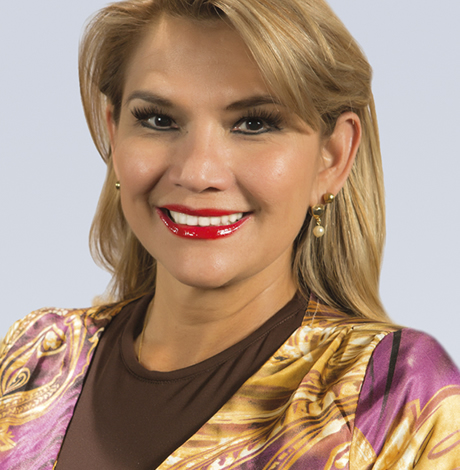
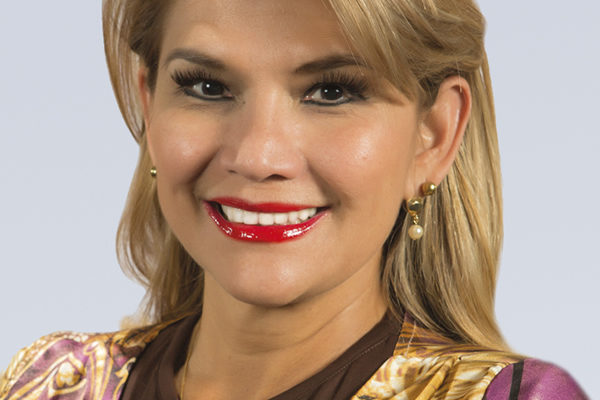
LA PAZ, Bolivia — El primer acto público de Jeanine Áñez tras ser declarada presidenta interina de Bolivia fue llegar hasta el Palacio Quemado (la casa de gobierno boliviano) en La Paz levantando una Biblia. Al mismo tiempo que gritaba eufóricamente “la Biblia vuelve a Palacio”, luego de que los militares le entregaran la banda presidencial tras forzar la dimisión del expresidente Evo Morales, quién posteriormente recibió asilo político en México. “Gloria a Dios” le respondían sus seguidores mientras entraba al lugar.
“Esta Biblia es muy significativa para nosotros. Nuestra fuerza es Dios, el poder es Dios, que Dios nos bendiga queridos hermanos bolivianos”, aseguró más tarde Áñez desde un balcón del Palacio.
“La Biblia vuelve a Palacio”, dice Jeanine Áñez. La senadora, quien se declaró presidenta de #Bolivia, se dirigió al antiguo Palacio de Gobierno levantando una Biblia.https://t.co/3kh3o0KNGP pic.twitter.com/EVF4N85VPi
— CNN Argentina (@CNNArgentina) November 12, 2019
La senadora opositora y segunda vicepresidenta del Senado asumió para sorpresa de muchos tras varias renuncias de políticos oficialistas en plena crisis política y social generada por los cuestionados comicios del 20 de octubre pasado. Áñez se ha perfilado como una de las políticas más conservadoras de Bolivia, en febrero de este año participó como exponente en el Congreso Iberoamericano por la Vida y la Familia en Panamá y en diferentes ocasiones se ha mostrado como una férrea opositora a la población LGBTQ, migrantes, mujeres (en especial antiaborto) e indígenas de su país.
Desde que se autoproclamó como jefa de Estado iniciaron protestas en para exigir su salida del poder. En todos los discursos que hasta ahora ha realizado la mandataria interina se hicieron referencias a la religión y en la posesión del nuevo gabinete ministerial nueve de las 11 nuevas autoridades hicieron la señal de la cruz con la mano derecha. Nada parecido al combativo puño izquierdo levantado que predominó entre los diferentes ministros y viceministros que acompañaron a Morales.
“Juran por Dios, por la patria y por la Constitución Política del Estado”, dijo la nueva presidenta en el momento de posesionar a sus colaboradores más próximos.
Posteriormente firmó un polémico decreto para frenar las protestas en su contra.
“El personal de las Fuerzas Armadas, que participe en los operativos para el restablecimiento del orden y estabilidad pública, estará exento de responsabilidad penal cuando en cumplimiento de sus funciones constitucionales, actúen en legítima defensa o Estado de necesidad”, señala el decreto 4078.
“Es un decreto supremo que exonera a todos los militares que en función de defensa del estado, así lo llaman, puedan asesinar a las personas, eso es una orden a matar, eso es dictadura, no hay otra figura al respecto”, explicó al Washington Blade, David Aruquipa, un histórico activista LGBTQ en Bolivia.
La medida alertó a la Comisión Interamericana de Derechos Humanos (CIDH) condenando “el uso desproporcionado de la fuerza militar y policial”.
“El Estado tiene el deber de respetar el derecho humano a la protesta pacífica”, indicó la entidad. Mientras que la Alta Comisionada de Naciones Unidas para los Derechos Humanos, Michelle Bachelet, señaló que “la represión puede recrudecer la situación”.
Bachelet aseveró a través de un comunicado que “urge a las autoridades a garantizar que las fuerzas de seguridad cumplan con las normas y estándares internacionales en materia de uso de la fuerza, así como a asegurar el derecho a la vida y a la integridad física de las personas que protestan”.
Respecto al pronunciamiento de Bachelet, Aruquipa agregó que “esta señora Áñez con todo su gabinete está respaldado la violencia y las muertes. Todo esto ha generado una convulsión social, han cercado y bloqueado los caminos; las comunidades indígenas y los movimientos sociales están marchando en la ciudad de La Paz y el resto del país, esto va a desbordar en una situación que va a sumar más muertes de este gobierno de facto”.
Bolivia es uno de los pocos países del mundo que protege y sanciona la discriminación por orientación sexual e identidad de género en su Constitución. En octubre de 2011, mediante Decreto Supremo se declaró oficialmente la conmemoración del IDAHOBiT y en 2016 se promulgó una Ley de Identidad de Género que tuvo más de ocho años de debate legislativo y ejecutivo. Estos y otros avances corren peligro con Áñez en el poder.
“Estoy semiclandestina esperando una solicitud de asilo político para salir del país, estoy con mis maletas listas para dejar con mucho dolor mi país. He sido amenazada de muerte”, confesó al Blade, Tamara Núñez del Prado, defensora de derechos humanos y activista trans del país latinoamericano. Núñez del Prado salió del closet cuando tenía 32 años mientras se desempeñaba como asesora de Teresa Morales, entonces ministra de Desarrollo y Economía en otra era de Morales.
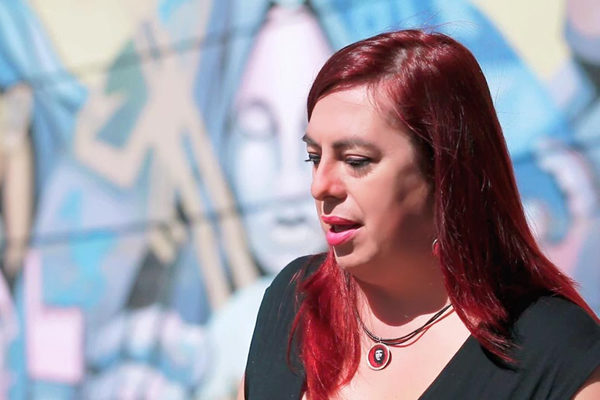
Núñez del Prado advirtió al Blade que “tenemos una presidenta que es parte de las plataformas que están a favor de la familia original, que está en contra de todas las políticas LGBTI, ella sostiene que existe una ideología de género, es antiaborto”.
“Inclusive dijo que iba a pedir la derogación de varias normativas que están en contra de Dios y claramente la ley de identidad de género es una de ellas”, subrayó Núñez del Prado.
Para Núñez del Prado en Bolivia hubo un golpe de estado “cuando los altos mandos policiales y militares le sugieren renunciar al Presidente, hay un vicio de nulidad que se llama violencia, los militares y policías no pueden deliberar ni debatir por ley. Entonces lo que hicieron fue intervenir en la política interna de Bolivia y tomar partido por un grupo”.
“Si están quemando las casas de tus ministros, si están secuestrando a los familiares de tus ministros para poder desmovilizar y frenar al poder, significa que es un golpe de estado, porque el Evo les tuvo que decir renuncien para cuidar sus casas, sus vidas y sus familias, al dejarlo solo, eso se llama un golpe de estado”, aseguró al Blade.
Rayza Torriani, excandidata a diputada y actual directora ejecutiva de gestión de proyectos para Trébol, una organización LGBTQ boliviana, comentó al Blade que “hoy podemos ir viendo con mucho miedo la situación política del país, porque está suscitando demasiada violencia, muerte, un gobierno interino que está gobernando con la primicia de la Biblia y la religión que la impone como primer eje puesto, eso nos puso en una situación de alarma porque sabemos que lamentablemente cuando se habla de religión, hablamos de retrocesos que derivan en violaciones a los derechos humanos, esta situación nos preocupa muchísimo”.
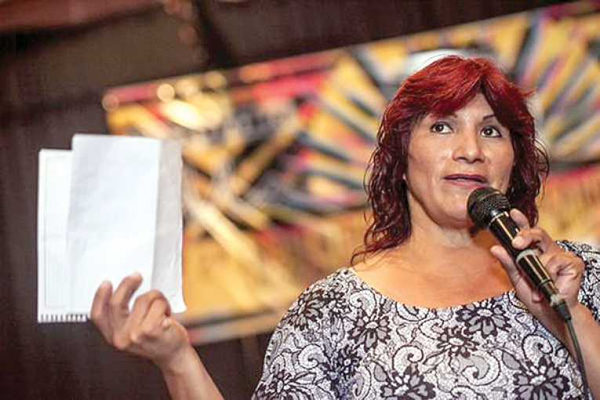
Antes de que Áñez llegará a Palacio, Torriani había participado en las protestas que exigían la renuncia de Morales a la presidencia. Respecto a eso dijo al Blade que “yo salí a las calles a pedir la no reelección de el Evo, por la renovación de nuevos liderazgos para mi país, nunca pensé que esto terminaría con la Biblia gobernado Bolivia”. Torriani contó al Blade que “estoy esperando la confirmación de una reunión con la presidenta interina para dialogar con ella, pedir el cese de la violencia y educarla. Esa es mi forma de hacer activismo”.
Hasta el momento, ninguna organización LGBTQ de Bolivia se ha manifestado sobre la situación.
“Me preocupa que no haya un pronunciamiento público de las organizaciones y redes nacionales, las organizaciones articuladas deberían manifestarse sobre esta situation, entiendo que hay diferencias pero es importante dar una muestra sobre el impacto que está generando todo esto en los derechos nuestra población”, lamentó Aruquipa.
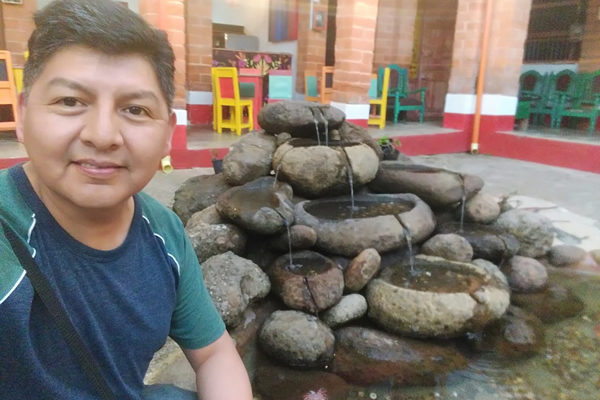
“Es un momento para que el movimiento LGBTI se rearticule y nos repensemos como enfrentar esta situación, y no me cabe duda que tenemos las capacidades para hacerlo y así no permitir que la derecha fascista retome nuevamente el gobierno, porque lo que está pasando es una muestra de lo que puede pasar más adelante en las elecciones”, concluyó Aruquipa.

Advocacy groups are demanding the Trump-Vance administration not to deport two gay men to Iran.
MS Now on Jan. 23 reported the two men are among the 40 Iranian nationals who the White House plans to deport.
Iran is among the countries in which consensual same-sex sexual relations remain punishable by death.
The Washington Blade earlier this month reported LGBTQ Iranians have joined anti-government protests that broke out across the country on Dec. 28. Human rights groups say the Iranian government has killed thousands of people since the demonstrations began.
Rebekah Wolf of the American Immigration Council, which represents the two men, told MS Now her clients were scheduled to be on a deportation flight on Jan. 25. A Human Rights Campaign spokesperson on Tuesday told the Blade that one of the men “was able to obtain a temporary stay of removal from the” 10th U.S. Circuit Court of Appeals, and the other “is facing delayed deportation as the result of a measles outbreak at the facility where they’re being held.”
“My (organization, the American Immigration Council) represents those two gay men,” said American Immigration Council Senior Fellow Aaron Reichlin-Melnick in a Jan. 23 post on his Bluesky account. “They had been arrested on charges of sodomy by Iranian moral police, and fled the country seeking asylum. They face the death penalty if returned, yet the Trump (administration) denied their asylum claims in a kangaroo court process.”
“They are terrified,” added Reichlin-Melnick.
My org @immcouncil.org represents those two gay men. They had been arrested on charges of sodomy by Iranian moral police, and fled the country seeking asylum. They face the death penalty if returned, yet the Trump admin denied their asylum claims in a kangaroo court process.
They are terrified.
— Aaron Reichlin-Melnick (@reichlinmelnick.bsky.social) January 23, 2026 at 8:26 AM
Reichlin-Melnick in a second Bluesky post said “deporting people to Iran right now, as body bags line the street, is an immoral, inhumane, and unjust act.”
“That ICE is still considering carrying out the flight this weekend is a sign of an agency and an administration totally divorced from basic human rights,” he added.
Deporting people to Iran right now, as body bags line the street, is an immoral, inhumane, and unjust act. That ICE is still considering carrying out the flight this weekend is a sign of an agency and an administration totally divorced from basic human rights. www.ms.now/news/trump-d…
— Aaron Reichlin-Melnick (@reichlinmelnick.bsky.social) January 23, 2026 at 8:27 AM
HRC Vice President of Government Affairs David Stacy in a statement to the Blade noted Iran “is one of 12 nations that still execute queer people, and we continue to fear for their safety.” Stacy also referenced Renee Good, a 37-year-old lesbian woman who a U.S. Immigration and Customs Enforcement agent shot and killed in Minneapolis on Jan. 7, and Andry Hernández Romero, a gay Venezuelan asylum seeker who the Trump-Vance administration “forcibly disappeared” to El Salvador last year.
“This out-of-control administration continues to target immigrants and terrorize our communities,” said Stacy. “That same cruelty murdered Renee Nicole Good and imprisoned Andry Hernández Romero. We stand with the American Immigration Council and demand that these men receive the due process they deserve. Congress must refuse to fund this outrage and stand against the administration’s shameless dismissal of our constitutional rights.”
Maryland
Expanded PrEP access among FreeState Justice’s 2026 legislative priorities
Maryland General Assembly opened on Jan. 14
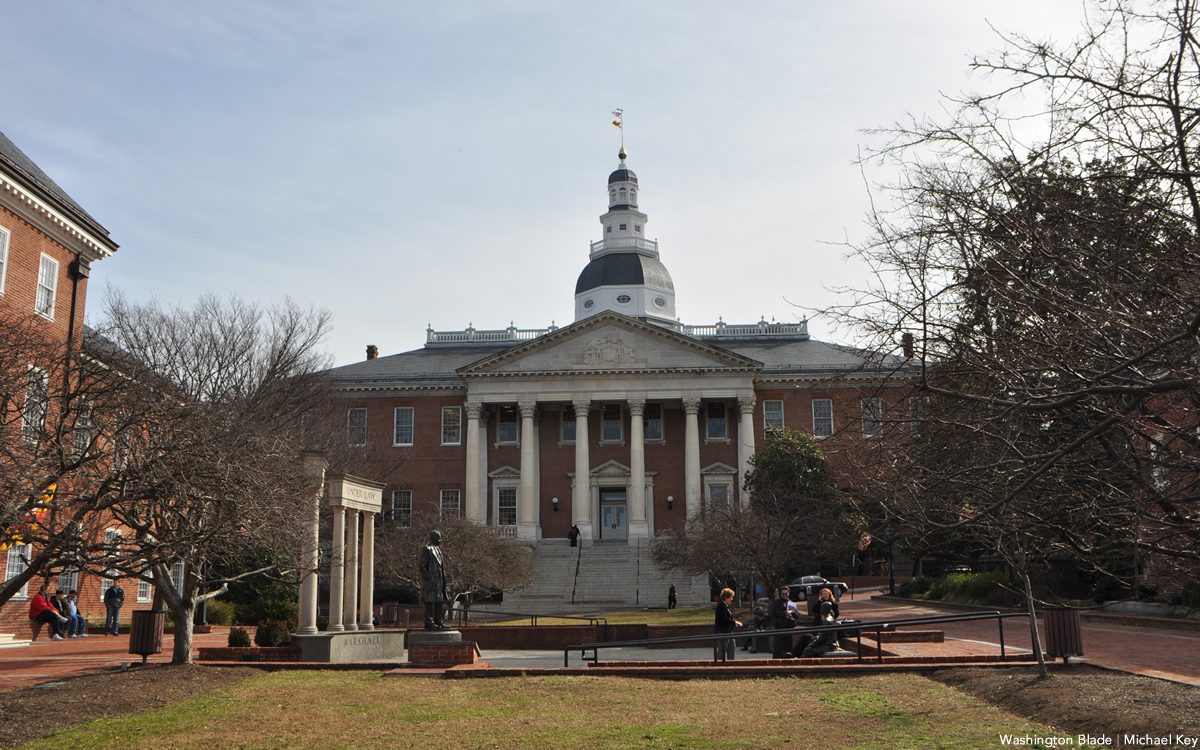
FreeState Justice this week spoke with the Washington Blade about their priorities during this year’s legislative session in Annapolis that began on Jan. 14.
Ronnie L. Taylor, the group’s community director, on Wednesday said the organization continues to fight against discrimination against people with HIV/AIDS. FreeState Justice is specifically championing a bill in the General Assembly that would expand access to PrEP in Maryland.
Taylor said FreeState Justice is working with state Del. Ashanti Martinez (D-Prince George’s County) and state Sen. Clarence Lam (D-Arundel and Howard Counties) on a bill that would expand the “scope of practice for pharmacists in Maryland to distribute PrEP.” The measure does not have a title or a number, but FreeState Justice expects it will have both in the coming weeks.
FreeState Justice has long been involved in the fight to end the criminalization of HIV in the state.
Governor Wes Moore last year signed House Bill 39, which decriminalized HIV in Maryland.
The bill — the Carlton R. Smith Jr. HIV Modernization Act — is named after Carlton Smith, a long-time LGBTQ activist known as the “mayor” of Baltimore’s Mount Vernon neighborhood who died in 2024. FreeState Justice said Marylanders prosecuted under Maryland Health-General Code § 18-601.1 have already seen their convictions expunged.
Taylor said FreeState Justice will continue to “oppose anti anti-LGBTQ legislation” in the General Assembly. Their website later this week will publish a bill tracker.
The General Assembly’s legislative session is expected to end on April 13.
Central America
Dignidad para vidas LGBTQ en Centroamérica
Embajada canadiense en El Salvador se presentó ‘Historias de vida desde los cuerpos y territorios de la disidencia LGBTIQ+’

SAN SALVADOR, El Salvador — “A los 16 años, mi papá me echó”. Esa frase directa, sin adornos ni concesiones, es parte de una de las historias más impactantes del libro “Historias de vida desde los cuerpos y territorios de la disidencia LGBTIQ+”, presentado el 23 de enero. El testimonio pertenece a Estrella Cerón, mujer trans salvadoreña, cuya vida quedó marcada por la expulsión familiar y la violencia cotidiana ejercida contra su identidad.
Estrella relata que fue descubierta abrazando a un muchacho en la panadería que pertenecía a su familia, lugar donde también trabajaba. La respuesta fue inmediata: no le permitieron cambiarse de ropa ni llevar sus pertenencias. Salió “sucia, con olor a grasa, sin zapatos”. Su padre lloró al verla irse, pero no la detuvo. “Así ándate”, le dijo. Ese episodio no solo marcó su historia personal, sino que hoy se convierte en un reflejo de una realidad compartida por muchas personas trans en El Salvador y la región.
Durante la presentación del libro, Cerón tomó la palabra y compartió lo que significó volver a su historia frente a otras personas. Reconoció que no fue un proceso sencillo, pues implicó enfrentarse a recuerdos profundamente dolorosos.
“Fue doloroso hablarlo, sentí como un muro que fui rompiendo a poco a poco, saliendo adelante y pues hasta el día de hoy me siento más empoderada y más fuerte”, expresó. Sus palabras resonaron entre las y los asistentes, evidenciando que narrar la propia vida puede convertirse en un acto de sanación y afirmación personal.
Este momento público subrayó uno de los ejes centrales del proyecto: el derecho de las personas LGBTQ a contar sus historias en sus propios términos, sin miedo y con dignidad.
Rostros de la Equidad: un proyecto regional de memoria y justicia
La presentación de las publicaciones se realizó en el marco del proyecto Rostros de la Equidad, impulsado por COMCAVIS TRANS, con el apoyo de OIKOS y la Embajada de Canadá en El Salvador. El evento reunió a activistas, representantes de organizaciones sociales, cooperación internacional y público en general.
Como parte de este proyecto se presentaron dos materiales: el libro “Historias de vida desde los cuerpos y territorios de la disidencia LGBTIQ+” y el glosario vivencial y de conceptos sobre la diversidad sexual y de género. Ambos productos buscan aportar a la visibilización, sensibilización y defensa de los derechos humanos de las personas LGBTQ en Centroamérica.
El proyecto se concibió como un proceso colectivo, regional y participativo, en el que las voces protagonistas fueran las de quienes históricamente han sido marginadas.
El libro de historias de vida se distancia de la lógica del simple recopilatorio de testimonios. Tal como lo expresa su prólogo, se trata de “un acto de memoria, reparación, justicia personal y colectiva”. Su objetivo es mostrar voces que han resistido al silencio y al miedo, y que hoy deciden narrar sus verdades.
Las historias incluidas atraviesan experiencias de expulsión familiar, discriminación, violencia institucional, migración forzada y exclusión social. Sin embargo, también dan cuenta de procesos de resistencia, organización comunitaria, reconstrucción personal y esperanza.
En ese equilibrio entre dolor y dignidad, el libro se convierte en una herramienta política y pedagógica que interpela a la sociedad y a las instituciones.
Junto al libro se presentó el glosario vivencial y de conceptos sobre la diversidad sexual y de género, una propuesta que busca ir más allá de las definiciones tradicionales. El glosario no se limita a explicar términos, sino que los conecta con experiencias reales de personas LGBTQ.
Cada concepto está atravesado por el derecho a la identidad, el reconocimiento y la dignidad. De esta forma, las palabras dejan de ser etiquetas para convertirse en relatos vivos que reflejan cuerpos, territorios e historias concretas.
Las organizaciones impulsoras señalaron que el glosario pretende ser una herramienta accesible para procesos formativos, educativos y comunitarios, aportando a una comprensión más humana de la diversidad sexual y de género.
El respaldo internacional y el valor de la resistencia
Durante la presentación, la embajadora de Canadá en El Salvador, Mylène Paradis, reconoció el trabajo de COMCAVIS TRANS, OIKOS y de todas las personas que hicieron posible Rostros de la Equidad.
“Las historias de vida reunidas en este libro nos recuerdan que resistir no es solo sobrevivir, sino también afirmar la propia existencia, reclamar derechos y construir esperanza incluso en contextos adversos”, afirmó Paradis, destacando la importancia de apoyar iniciativas que promueven la justicia social y los derechos humanos.
Su intervención subrayó el valor político de la memoria y el papel de la cooperación internacional en el acompañamiento de procesos liderados por organizaciones locales.
Un proceso regional de escucha y construcción colectiva
El libro y el glosario son el resultado de una consulta a 10 personas LGBTQ: cuatro de Guatemala, dos de El Salvador y cuatro de Honduras. Además, se realizaron grupos focales en cada uno de estos países para profundizar en las experiencias compartidas.
El proceso inició en agosto de 2024 y concluyó con la presentación pública de los resultados en enero de 2026. Para las organizaciones participantes, este trabajo evidenció la necesidad de generar espacios seguros de escucha y diálogo en la región.
La dimensión regional del proyecto permite identificar patrones comunes de violencia, pero también estrategias compartidas de resistencia y organización.
Georgina Olmedo, encargada del área de formación y nuevos liderazgos de COMCAVIS TRANS El Salvador, destacó que el libro busca reconocer las historias que atraviesan las personas LGBTQ.
“Son historias marcadas por la resistencia, la dignidad, el aprendizaje y toda la esperanza”, señaló, subrayando que muchas de estas vivencias continúan siendo invisibilizadas en el discurso público.
Para Olmedo, visibilizar estas narrativas es un paso necesario para transformar las realidades de exclusión y violencia que enfrenta esta población.
Escuchar sin juzgar: el valor del acompañamiento
Desde OIKOS, Jason García resaltó que el libro incluye voces de Guatemala y Honduras, lo que le otorga un carácter regional. Señaló que fue un honor conocer historias de personas que se atrevieron a contar lo que nunca antes habían contado.
García explicó que muchas de las personas participantes expresaron estar cansadas de ocultar quiénes son y que, durante el proceso, encontraron por primera vez espacios donde fueron escuchadas sin ser juzgadas.
“Cada historia que se comparte es un recordatorio de que ninguna violencia puede apagar la dignidad de una persona”, afirmó, destacando los procesos de sanación y reconstrucción que emergen incluso en contextos adversos.
Marielos Handal, integrante del equipo de OIKOS que acompañó la investigación, compartió una reflexión sobre los retos que implicó construir estas publicaciones. Las entrevistas, explicó, dejaron nudos en la garganta, silencios densos y muchas preguntas abiertas.
Entre ellas, cómo continuar escribiendo después de escuchar relatos de abandono, rechazo y violencia sistemática; cómo narrar sin revictimizar, sin simplificar ni maquillar la verdad, pero tampoco explotarla.
Estas preguntas atravesaron todo el proceso editorial, marcando el cuidado con el que se construyeron tanto el libro como el glosario, priorizando siempre la dignidad de las personas participantes.
Palabras que se convierten en dignidad colectiva
La presentación cerró con un llamado a leer estas publicaciones no desde la lástima, sino desde la responsabilidad colectiva de reconocer las deudas históricas con las personas LGBTQ en Centroamérica.
Historias de vida desde los cuerpos y territorios de la disidencia LGBTQ y su glosario vivencial se consolidan como documentos necesarios en un contexto marcado por la exclusión, pero también por la lucha, la memoria y la esperanza.
En cada relato, como el de Cerón, queda claro que narrar la propia historia es un acto profundamente político: contar lo vivido no borra el dolor, pero lo transforma en palabra, memoria y dignidad compartida.


















